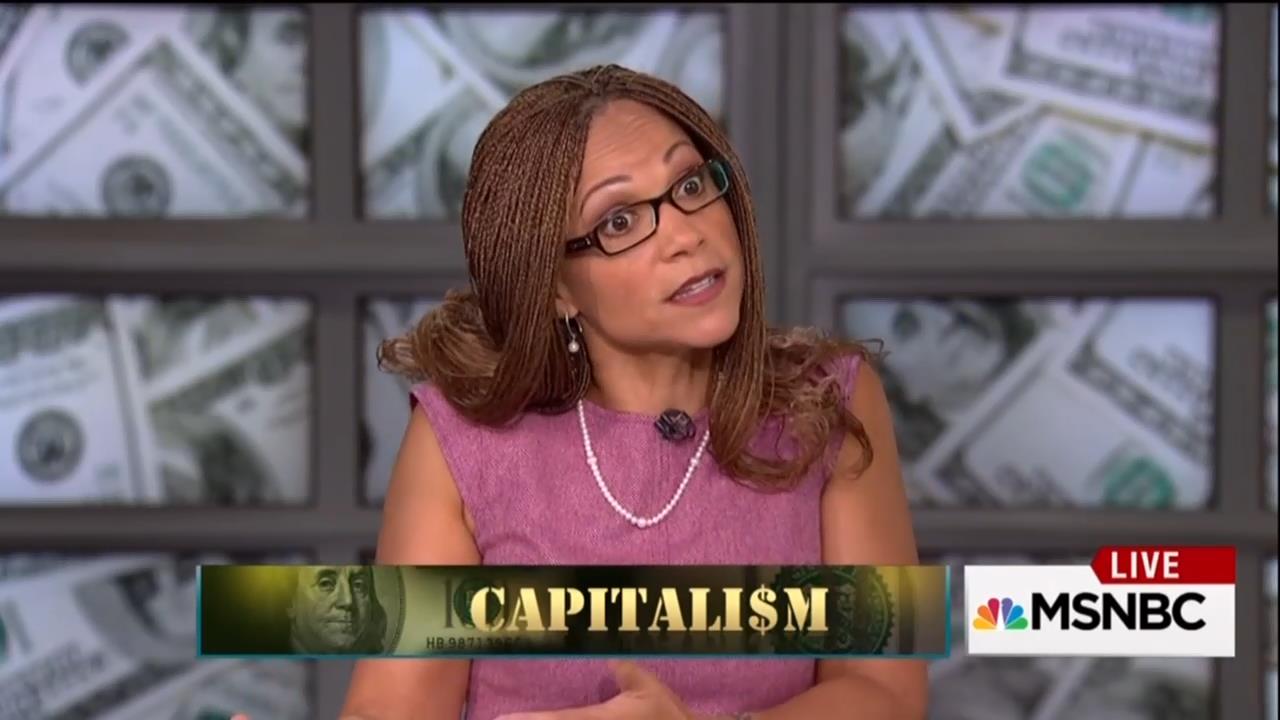 Soopermexican at The Right Scoop found another definitive Melissa Harris-Perry moment on Saturday morning. In rejoicing over how Bernie Sanders is making America safe for socialism (and socialist critiques of capitalism), she asked her panel why America has always been so persistently opposed to socialism. She had a pet theory.
Soopermexican at The Right Scoop found another definitive Melissa Harris-Perry moment on Saturday morning. In rejoicing over how Bernie Sanders is making America safe for socialism (and socialist critiques of capitalism), she asked her panel why America has always been so persistently opposed to socialism. She had a pet theory.
Why could that be? Racism, of course:
MELISSA HARRIS-PERRY: So we see this comparison a lot that the U.S. is alone, and nearly alone, among Western democracies in not having universal health care or guaranteed paid parental leave or many other perks of a more socialist government. But the question is why. What makes the U.S. different? And the way I tend to frame this to my students is why is there no socialism in the U.S.? The great Eric Foner question. And there`s a one-word answer, Kai, I'm looking at you, friend --
KAI WRIGHT, THE NATION MAGAZINE: Let me see. Could it be race?
HARRIS-PERRY: Could it be? I mean that becomes the kind of standard story, right, is that in this country, race and racial privilege has trumped class identity as a way of organizing our politics.
WRIGHT: Well, I mean so we could go way back, right, I mean the whole -- if we`re talking about capitalism in the first instance. The whole system globally was built on slavery. The modern economy was built - the cotton was built on cotton which was built on financing, financing slaves. And so from that moment forward, we`ve been in a discussion about capitalism in the United States that has, in fact, sorted people by race. And you can't -- and so when we get back to sort of the public investments that we make in people and that part of democratic socialism that has been challenged and difficult particularly in modern times because, coming out of the Great Society, coming out of the mid-20th century, we have had a politics that makes those public investments giveaways to black people.
After explaining that socialism isn’t exactly triumphing in Europe, especially in France under a socialist leader, Reason magazine editor-in-chief Matt Welch dissented from the MSNBC line:
MATT WELCH: I want to say something the history, and race is a huge part of the history of this country and sustained on everything. But capitalism didn`t just proceed from a bunch of people sitting around and saying how can I be the most racist?...But it also proceeded from a notion of individual rights and individual liberty. And some of the people who helped topple those racist structures that came or were put upon it were animated just as much by that notion of individual [liberty].
But the MSNBC lecture continued:
HARRIS-PERRY: So, the capitalism operates on our preferences, which are exogynist, which are fixed outside the system, and if racial bias is part of those preferences because of history, right, because we have this long history, then doesn`t it mean that the system must consistently have a corrective, right? So if, in fact, we just have a bias against certain kinds of bodies, don't we then have to come in and correct that bias, even in order to make a free market system operate?
When Jeffrey Miron from Harvard gently pointed out that some people resent “affirmative action” and begin to think minorities haven’t earned their status in society, Harris-Perry resisted: "But professor, you have to let me weigh in, that nobody needed affirmative action to teach bias against black and brown people. Like, that bias is pre-existing and then affirmative action comes and then affirmative action gets used as discourse. But it`s not as though -- it's kind of like saying that, you know, like all of a sudden white folks decide to use the N-word because of hip-hop. No, no, no, it was - they had already known how to use that word before!”





